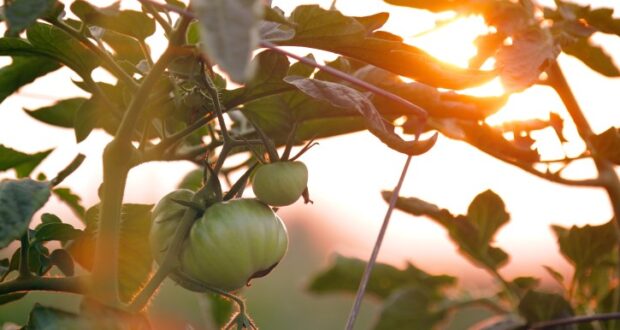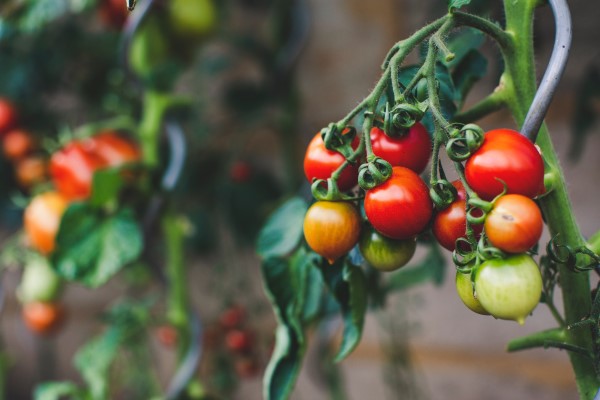By Helen Willoughby-Peck, UC Master Gardener of Mariposa
Most home gardeners who grow tomatoes have experienced a problem or two caused by diseases or environmental factors which contribute to poor production, foliage damage or plant death.
Here are a few of them that you might encounter this summer and possible solutions.
Tomato Fruit Set Failure and Flower Drop
You might be noticing that your plant isn’t setting fruit, or the flowers drop off. Many factors that can cause this problem. High temperatures cause pollen to become tacky and non-viable. Low light can contribute to poor fruit production. Excessive nitrogen can encourage leaf production but can cause blossom drop.
Keep your plants consistently moist in hot weather and be sure to plant tomatoes where they will receive full sun. Maintain good leaf cover or use a shade cloth during periods of excessive heat. Choose a fertilizer specifically designed for tomato plants. Finally, patience pays off. The cooler weather of early fall will put your tomato plants back into production.
Wilting, Yellowing and Leaf, Branch, or Plant Death
Some tomato plants are susceptible to disease from soil-borne pathogens. Fusarium wilt and Verticillium wilt are two common diseases found in our area and, when present in the soil, destroy the plant’s vascular system.
Use good irrigation management such as avoiding prolonged saturation of the soil and overhead watering. Use good sanitation practices by removing and destroying infected plants. Rotate your plants and avoid planting in areas which have previously hosted plants from the same family. Once present in the soil these pathogens live for years. Look for the V, F, or VF in the description of the tomato variety you are considering.
Blossom End Rot
Fruit develops a brown-black patch on the bottom where the blossom fell off. The problem occurs when inadequate calcium is delivered to the plant. This sometimes occurs because the soil is naturally low in calcium or inconsistent watering prevents the plant from taking up the necessary calcium. More commonly it occurs during the intense heat of the summer. When the plant becomes heat stressed it goes into survival mode and moves water to its leaves instead of its developing fruit, depriving the fruit of its needed calcium.
Avoid blossom end rot by maintaining even soil moisture. Applying gypsum and watering into the soil at planting time and when blossom end rot appears, can increase the availability of calcium to the plant.
Fruit Cracking
Large concentric circles of cracked skin are representative of heavy irrigation or rainfall particularly after a dry spell. Large cracks radiating from the stem downward usually are the result of temperatures over 90 degrees or too much sunlight. Harvest all mature fruits before an expected rain to avoid these cracks. Keep soil evenly moist and maintain good leaf cover to reduce the possibility of cracking.
You may find other perplexing conditions on your tomato plants. For help in identifying these conditions and how to solve them, contact the Master Gardener Helpline at 209-966-7078 or mgmariposa@ucdavis.edu.
About UC Master Gardeners of Mariposa County
UC Master Gardeners of Mariposa County is located at 5009 Fairgrounds Road, Mariposa, CA. For more gardening and event information, visit their website or Facebook page (UC Master Gardeners of Mariposa County).
UC Master Gardeners staff a helpline serving Mariposa County, including Greeley Hill, Coulterville, and Lake Don Pedro. Please contact them at 209-966-7078 or via e-mail at mgmariposa@ucdavis.edu.
Listen to them on the radio at KRYZ 98.5 FM on Wednesdays at 2 p.m and Saturdays at 5:00 p.m.
Check out these great gardening videos by Helen Willoughby-Peck!







